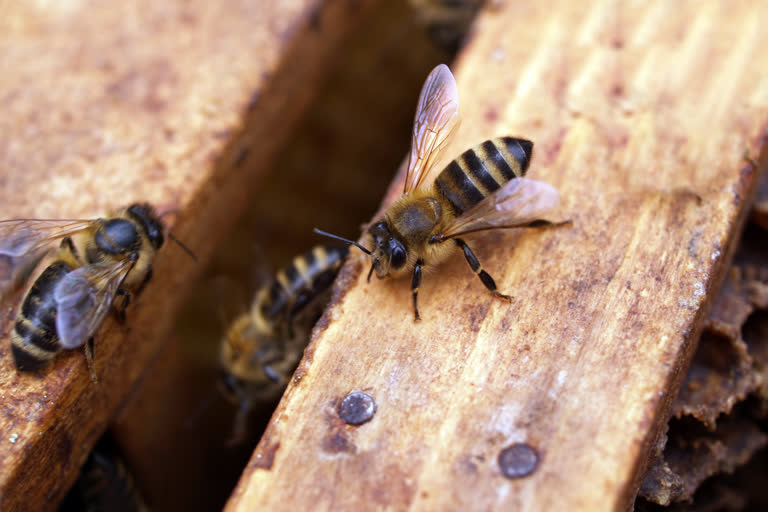Arusha: Tanzania women's bee keeping initiaitve is allowing them to pursue financial independence and also transforming them into conservationists of the land they are living.
The women of the Maasai Steppe are busy with their harvest in which one by one hive that is tied with the branches are lowered on the ground and the honeycomb was removed carefully. Then again the hives are restored high up in the canopy.
The initiative is focussing to produce thousands of hives which will be home for natural pollinators in protecting landscapes.
Most of the people who live here are Maasai, many are now semi-nomadic, raising cattle in the traditions which have lasted for centuries.
It is like a business in which the women run their beekeeping operation. Although the funding comes from a non-profit organisation called African Wildlife and People (AWP).
Maasai women restore the bush with beehives Read more:Japan looks for missing after typhoon, warned of mudslides
All the women working for the organisation don't repay to the organisation back in return they agree to commit their time and energies to conservation work.
They also participate in planting trees, village cleanups and environmental education programmes where they talk about the environmental problems and conservation to gather the support of the people for these activities.
AWP believes rural women are the best to spread the messenge for sustainable development it argues is critical to long-term conservation success.
It says almost 1200 women are involved with the schemes and there are now more than 1300 hives being planted in the wild bush for harvesting.
It makes sense to set up hives because Tanzanian law protects the land surrounding them. The women sell their honey through wholesale to markets in Arusha. They hope as their businesses grow, so too will the bush which sustains the wildlife.
Also read:Former LTTE cadre arrested in Sri Lanka
